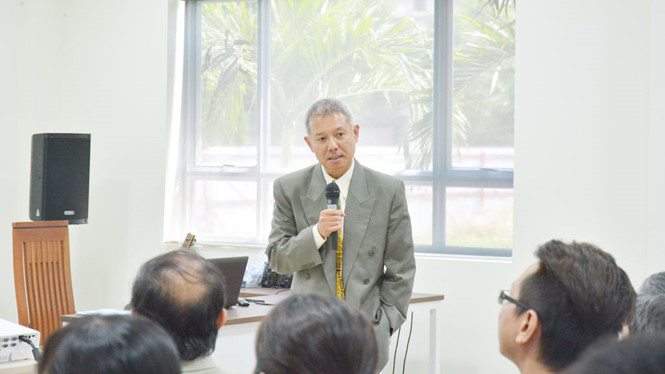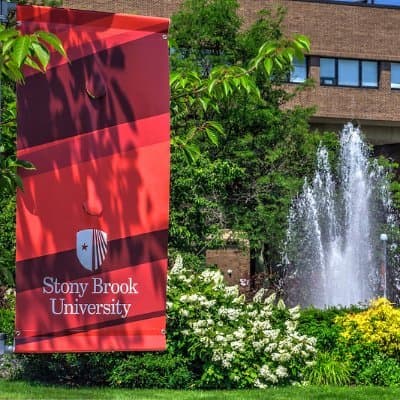Rigid Regulations Will Hinder Talented Individuals
 Professor Truong Nguyen Thanh does not meet the qualifications to become a university president under Vietnamese regulations
Professor Truong Nguyen Thanh does not meet the qualifications to become a university president under Vietnamese regulations
Although Professor Thanh was trusted by the Board of Trustees of Hoa Sen University with 16 out of 18 votes for the position of university president, the Higher Education Law stipulates that a university president must have at least 5 years of experience managing a department or faculty at a higher education institution. Based on the Ministry of Education and Training’s explanation, in a letter sent to the People’s Committee of Ho Chi Minh City, the Department of Education and Training of Ho Chi Minh City concluded that there was insufficient legal basis to confirm this criterion in Professor Thanh’s case. Consequently, the Department lacked the grounds to advise the People’s Committee to officially appoint Professor Thanh as the university president.
Challenges in Attracting Overseas Vietnamese Intellectuals
Following this event, many overseas intellectuals and scientists have expressed concern that such regulations will hinder the contributions of overseas Vietnamese scientists returning to work in Vietnam.
Professor Tran Cong Quy from Kyoto Institute of Technology (Japan) believes that Vietnam has missed an opportunity to develop its higher education system because Professor Truong Nguyen Thanh previously served as the Director of the Institute of Computational Science (under the Department of Science and Technology of Ho Chi Minh City). Moreover, Professor Thanh has many years of teaching and research experience at the University of Utah (USA). Additionally, he served as acting vice president, so it is hard to argue that Professor Thanh does not meet the standards to become a university president.
Professor Quy noted: “Before 2000, Chinese scientists did not want to return to their homeland to serve. However, after 2000, the Chinese government changed its policy towards overseas Chinese. As a result, many Chinese-Americans have returned to contribute to China’s science and technology. Since then, numerous scientific works from China have been published in reputable international scientific journals. With this open policy, their country has made significant strides compared to the 1980s and 1990s.”
Professor Vo Van Truong from Concordia University (Canada) commented: “It’s unfortunate that Vietnam still has such rigid laws and regulations. It makes it very difficult to attract overseas talent to contribute to Vietnam. In the current situation, if Vietnam wants to attract talented individuals back, the Ministry of Education and Training must be truly open-minded and reconsider all its standards.”
Professor Truong argued that the current regulations are rigid. “In Canada, I have had the opportunity to manage universities in various positions (department head, vice president) for many years at two universities. Never has the government intervened or had an influence on the selection of a university president. While management experience is required, there is no mandatory requirement for a specific number of years in any particular position,” said Professor Truong.
Where is University Autonomy?
The case of Professor Truong Nguyen Thanh also relates to a longstanding issue in Vietnam’s higher education system: university autonomy. To what extent should a university president, elected by the Board of Trustees, be subject to intervention by management authorities?
On May 5, Mr. Vu Van Tan, Chief of Office of the Board of Directors of Hoa Sen University, stated that the university leadership still supports Professor Thanh as president and is waiting for the official decision from the People’s Committee of Ho Chi Minh City regarding this matter.
Mr. Tran Duc Canh, a member of the National Education Council and Human Resource Development for the 2016 – 2021 term appointed by the Prime Minister, expressed his concerns about Professor Thanh’s case. He questioned why the Board of Trustees did not petition the Ministry of Education and Training or even the Prime Minister to reconsider the matter. The Board of Trustees should voice its opinion and advocate for its position. “If Hoa Sen University were a public institution, this would be difficult to address, but this is a private university, and the level of autonomy is much higher,” Mr. Canh emphasized.
According to Mr. Canh, Professor Thanh’s case arises at a time when the Higher Education Law is still being revised and presented to the National Assembly. The National Education Council and Human Resource Development have provided many suggestions during the revision process, with university autonomy being a particularly important issue. Especially in private universities, autonomy must be even higher.
Mr. Canh stated that the roles Professor Thanh held at the University of Utah, as understood by the Ministry of Education and Training, are accurate. He has not served as a department/faculty head as in Vietnam, only as the chairman of several councils. However, the one year he served as vice president at Hoa Sen University, trusted by the Board of Trustees, should be taken into consideration.
“However, such rigid legal regulations cannot be applied to many cases, so they will be ineffective. Rigid regulations will stifle potential and do not align with development conditions. In many universities in the US, even prestigious ones, the person in charge is often only a master’s or a lawyer, yet they manage the university very effectively. Management capability is based on specific job performance, not on degrees or any criteria,” Mr. Canh said.
Mr. Canh also stated that he hopes to bring this specific case up for discussion at the National Education Council meeting to promote greater university autonomy. From there, additional contributions can be made to amend the Higher Education Law. According to Mr. Canh, the most important question is the extent of decision-making power granted to universities.
Source: https://thanhnien.vn/giao-duc/quy-dinh-cung-nhac-se-can-tro-nguoi-co-nang-luc-959998.html

